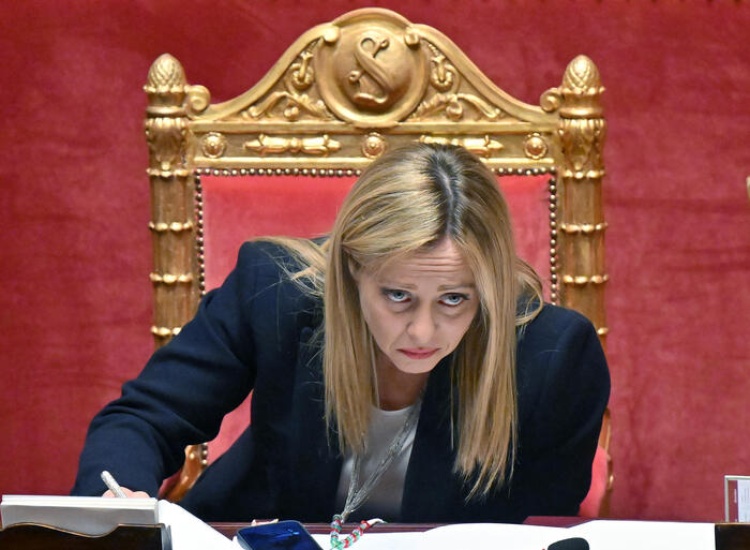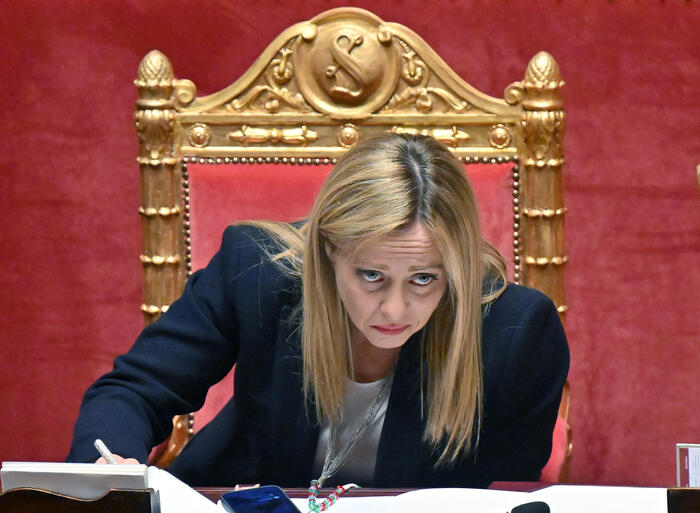As Chinese president Xi Jinping’s Russia visit continues into its second day, she also said that it was necessary to keep up the pressure on Moscow following its invasion of Ukraine.
“This government is used to defending the national interest,” she said.
“We have never made any secret of wanting to increase allocations for military spending, as previous governments did, perhaps secretly, without owning up to it.
“We do own up to it, as we are convinced that respecting the commitments (on military spending) is vital to defending the national interest.
“Freedom has a price.
“If you are not able to defend it, others do, but they do so by putting a price on it”.
She also stood by Italy giving military support to Kyiv and backing Western sanctions on Moscow following its aggression against its neighbour.
“The pressure on Moscow is fundamental on the geopolitical and diplomatic level to ensure the respect of international law and to create the conditions for a path of negotiations to reach a just peace,” Meloni said.
“Conditions which, so far, have not come about but which we are still pursuing every day with tenacity”.
NATO said on Tuesday that Italy's military spending was 1.51 per cent of GDP in 2022.
The government has vowed to raise its military sending to 2 per cent in line with NATO demands.
Italian military expenditure in 2022 was 1.51 per cent of GDP, while in 2021 the figure was 1.57 per cent, according to the estimates published in NATO's annual report.
The report shows that in 2014 — the year of Russia's annexation of Crimea and the start of hostilities in the eastern Ukraine Donbass region — Italy's defence spending as a percentage of GDP was 1.14 per cent.
That spending, the report said, grew in real terms to US$1.930 billion last year (again based on 2015 prices), up from US$1.1861 billion in 2021.
NATO Secretary-General Jens Stoltenberg said he expected the 2 per cent pledge to be a budget minimum.
ANSA











